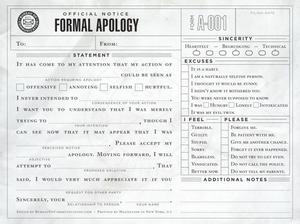One of the things I did this week was to available myself to the sacrament of Confession. As a spiritual disciple I try to get to the sacrament every month; regrettably it was more than a month since the last time I received the sacrament. Let me also recognize that Father Luigi Giussani encouraged the Memores Domini and other followers in Communion and Liberation to go to confession every 15 days. It was great to go to confession: a refreshed sense of life in Christ, especially in my relations with others, in the reception of Holy Communion, but I had the distinct feeling of having a “new humanity.” Going to confession is a recognition of Someone greater in my life, that the living of my is not merely about me and my selfish interests, and that sin is corrosive, but the sacrament of confession (aka penance, or reconciliation), helps me recognize the truth about me: that I am truly loved by God, whose other name is Mercy.
Not long ago at the annual meeting of US bishops in Baltimore Cardinal Dolan told the gathered bishops –following upon what Pope Benedict had said– that a clean conscience, a life lived without personal sin was the first work of the new evangelization today. You can’t preach and encourage others to know Jesus, the Church and effectively do good works if your soul is darkened by sin. Our personal sin clouds judgment, it sours our personality, it keeps us out of true unity (communio) with God, self and others. Being “right with God means” being right with yourself and your interpersonal relations. Think of the great feeling in hearing the words, “go, your sins are forgiven.” Think of the beauty of new life given to you, again at that moment. This experience begs us to get to confession often.
The confession of sins is an integral part of the new evangelization because it is a proclamation, a recognition, an acceptance of the good news of God’s love for us personally, and without reservation. Confession, like the other sacraments, is about the heart; and only a clean heart (conscience) will be open to God and His teachings. Evangelization is not only about teaching doctrine and proclaiming the truth in the pulpit or classroom; it is about the fundamental openness to the love of God. We Catholics believe this about the sacrament of confession because it is no formal apology: confession is true forgiveness! It is a gift, it is NOT a form where we check boxes and mechanically go through the motions.
A word about the priest. Monsignor Krzysztof Nykiel, regent of the Apostolic Penitentiary (the office at the Holy See which works with matters of conscience and confession), said the priests who are the best confessors know how to balance being a father, counselor and judge; they must know and understand church teaching and know how to convey it in the confessional with “prudence, discretion, discernment and goodness.”
